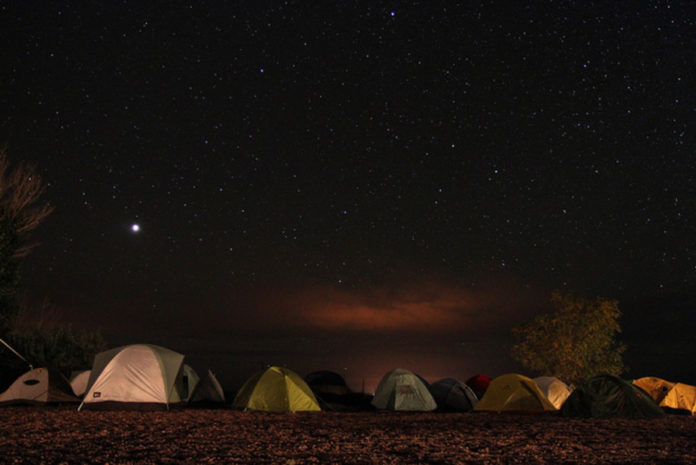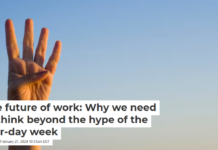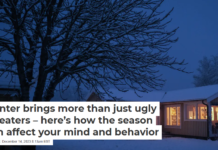

Hannah Valmadre, The Conversation
One week of camping outdoors and eschewing all man-made light is enough to reset a person’s body clock to its natural sleep rhythms, a new study has found.
Our increased use of electrical light, and reduced exposure to natural light, caused modern humans to stray from our natural circadian rhythms or sleep patterns, and may be a contributor to poor quality sleep.
The findings, published in Current Biology, show that humans’ internal biological clocks will synchronise to a natural, midsummer light-dark cycle if the opportunity arises. A midsummer light-dark cycle in Colorado, in the US where the study took place, is 14 hours and 40 minutes of light, 9 hours and 20 minutes of darkness in a 24 hour period.
Relying on electrical light after sunset contributes to late sleep schedules, which disturbs natural circadian rhythms and can leave us feeling not well rested.
The new study, conducted by Dr. Kenneth Wright and colleagues from the University of Colorado in the US, found that increased exposure to sunlight, as opposed to largely relying on electric light, shifted the internal clock earlier, which could help reduce the “physiological, cognitive and health consequences of circadian disruption.”
The study ran for two weeks, and included eight participants (six men, two women) who had a mean age of 30.3 years.
For the first week, participants were encouraged to perform their daily routines of work, school, social activities and self-selected sleep schedules.
For the second week, participants camped in tents outdoors with only natural light and campfires. Torches or personal electronic devices were banned.
The participants’ internal circadian timing was recorded and compared for both weeks of the experiment. The study was conducted in the Rocky Mountains, Colorado, in July.
Easier to wake
After a week of exposure to only natural light, our internal circadian clocks align with solar time, the study found. In other words, our internal biological night begins at sunset, and ends when we wake just after sunrise.
“After exposure to natural light, we found the timing of the circadian clock to be approximately two hours earlier and [sleep-promoting hormone] melatonin offset to occur more than 50 minutes prior to wake time, suggesting that if human circadian and sleep timing was in synchrony with the natural light-dark cycle, the circadian low point in brain arousal would move to before the end of the sleep episode, making it easier to awaken in the morning,” the researchers found.
Researchers also found that the participants’ average light exposure increased more than four times during the week of only natural light.
Dr Nicole Lovato, a sleep expert and Postdoctoral Research Fellow at Flinders University, described the research as “a novel approach to research aimed understanding the basic physiological processes which govern our daily lives.”
“It confirms existing knowledge regarding the effect of light exposure on the circadian rhythm, or body clock, and its timing in humans,” said Dr Lovato, who was not involved int he study.
Restful camping
Dr Leon Lack, another sleep expert from Flinders University said the new study “confirms many anecdotal reports from patients who suffer from delayed sleep periods that the only time when they could get to sleep early and wake up early was while camping during the summer.”
The study “suggests that controlling light exposure (decreasing evening light levels, or filtering out the shorter wavelengths such as blue and green) and increasing morning light exposure would be sufficient to treat delayed sleep problems. This is a fairly common problem in adolescents and young adults,” said Dr Lack, who was also not involved in the study.
An outdoor lighting regime could temporarily correct the problems of delayed sleep phase, but it is likely these changes would be gradually lost, he said.
“This is likely to be due to those with delayed sleep phase disorder having longer period lengths of their circadian rhythms (24.8 hours instead of 24.3 hours). These people have a stronger tendency to delay with respect to our 24 hour world because their body clock ticks over more slowly.”
![]()
This article was originally published on The Conversation.
Read the original article.

















